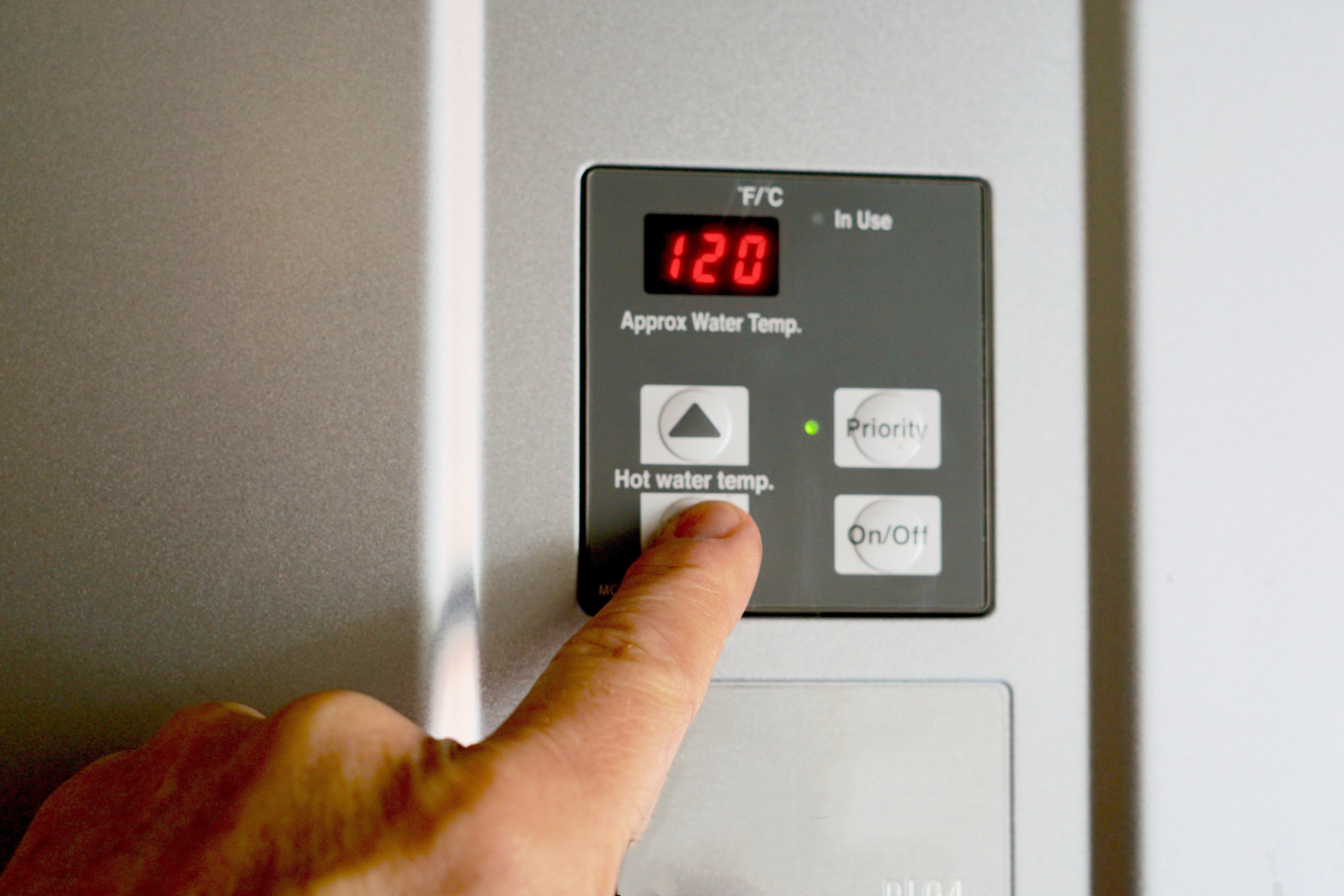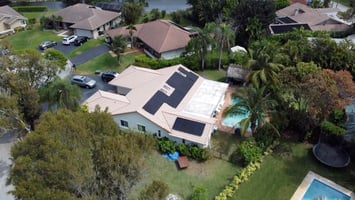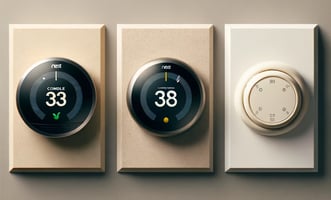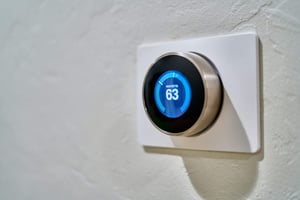Solar energy, known for its environmentally friendly nature and the potential to reduce energy...
Extensive Tips for Saving Energy with Your Water Heater in Florida
Florida's tropical climate and high humidity mean that homes in the state have unique energy needs. Whether you're heating water for a refreshing shower after a day at the beach or for household cleaning, water heaters play an indispensable role in every Florida home. Here are ten tips to help you reduce energy consumption and save on your monthly bills. Let's get started!
Adjust the Thermostat
Every degree matters when it comes to your water heater. A slight downward adjustment in temperature can yield significant savings. Many households rarely require the default setting on their heaters and might not even notice a modest drop in temperature.
-
- Description: Often, water heaters come preset at 140 °F (60 degree Celsius), which might be more than you require. By lowering the setting to around 120 °F (48.89 degree Celsius), you can reduce energy usage without compromising on comfort.
- Example: A family of four can save between $12 to $30 annually for every 10 °F (-12.22 degree Celsius) reduction in water temperature.
Insulate the Tank
Insulating older water heaters can dramatically improve their efficiency. Heat loss is a significant issue with older models, making them consume more energy to maintain the desired temperature. With proper insulation, you can keep the heat contained, reducing the energy required to heat the water.
-
- Description: Older water heater models can lose heat, making them work harder. Insulating them can retain the heat.
- Example: By wrapping a not-yet-insulated water heater with an insulation blanket, you can save around 7%–16% in annual water heating costs.

Reducing your water temperature to 120 °F (48.89 degree Celsius)
Insulate Hot Water Pipes
The amount of energy wasted through heat loss in uninsulated pipes can be surprising. When pipes lose heat, it not only wastes energy but also makes you wait longer for hot water. Proper insulation of these pipes can provide faster hot water and conserve energy.
-
- Description: Insulating pipes reduces heat loss and can raise water temperature 2 °F (-16.67 degree Celsius)–4 °F (-15.56 degree Celsius) hotter than uninsulated pipes, allowing for a lower water heater temperature setting.
- Example: If it usually takes 15 seconds for hot water to reach your shower, insulating your pipes might reduce this time, saving both water and energy.
Install Heat Traps
Many people are unaware of the energy that can be lost through unwanted convective flow from the water heater tank. Heat traps, simple in design but effective in action, curtail this flow and save considerable energy. Essentially, they allow water into the tank but restrict unnecessary hot water flow out of it when not in demand.
-
- Description: Heat traps allow water to flow into the tank but prevent unwanted hot-water flow from the tank, saving energy.
- Example: New models typically have these built-in, but retrofitting an older model with heat traps can save $15-$30 on your water heating bill annually.
Routine Maintenance
Just as a car runs better with regular check-ups, water heaters also benefit from periodic maintenance. Sediment build-up is a common occurrence, especially in areas with hard water. This sediment can reduce efficiency and even shorten the life of your heater.
-
- Description: Flushing the tank annually to remove sediment ensures efficient heating and prolongs the life of the heater.
- Example: In regions with hard water, sediment can accumulate rapidly. By flushing out a gallon or so every few months, you can observe if there's a lot of sediment and determine if a full flush is necessary.
Install Low-Flow Shower heads and Faucets
With the advancement in technology, modern fixtures are designed to provide the same level of comfort using less water. By reducing the amount of hot water consumed, they indirectly result in energy savings.
-
- Description: Modern low-flow fixtures offer less water flow but don't compromise on performance. This reduces the amount of hot water used.
- Example: Old shower heads might have a flow rate of 5 gallons (22.73 litres) per minute, while many low-flow shower heads can reduce this to 2 gallons (9.09 litres) per minute or less, offering the same comfort but using less water and energy.
Opt for Cold Water for Laundry
Heating water for laundry consumes significant energy. Thanks to advancements in detergent formulations, cold water can now effectively clean clothes in most instances, leading to substantial energy savings.
-
- Description: Heating water for laundry uses a lot of energy. Modern detergents work just as effectively with cold water.
- Example: Switching to cold water for two loads of laundry a week can save nearly 500 lbs. of CO2 emissions annually for an electric water heater.
Repair Leaks Promptly
A dripping faucet or a leaky pipe might seem minor, but over time, these can lead to significant water and energy wastage. Addressing such issues promptly can prevent the unnecessary heating of excess water.
-
- Description: Even a small leak can waste a lot of water and energy over time.
- Example: A leak rate of one drip per second can waste over 1,600 gallons (ca. 7,274 l) of water a year and force your heater to heat an additional 1,600 gallons (ca. 7,274 l).
Consider Solar Water Heaters
Florida, blessed with abundant sunshine, is an ideal place to harness solar energy. Solar water heaters capture this free energy source, reducing reliance on conventional energy sources and offering impressive savings.
-
- Description: Utilizing Florida's abundant sunshine, solar water heaters can significantly reduce energy costs.
- Example: A typical household can meet 50%-80% of their hot water needs through a solar water heater, leading to significant annual savings.
Upgrade to an Energy-Efficient Model:
As technology advances, water heaters become more efficient. If your water heater is old, it might be less energy-efficient than the newer models available today. Investing in an upgraded model with a higher Energy Factor (EF) can provide long-term energy and cost savings.
- Description: If your heater is nearing the end of its lifespan, consider a model with a high Energy Factor (EF).
- Example: Replacing a water heater with an EF of 0.7 with one that has an EF of 0.95 can result in 20% energy savings, which translates to cost savings in the long run.
These expanded tips offer Florida residents an in-depth understanding of how to optimize their water heating systems, ensuring a harmonious blend of comfort and energy conservation. I do not mean you need to apply these all, but at least it can be used as a guide that can help you bring your energy bill down and optimize the way you are consuming the energy. And save money!



